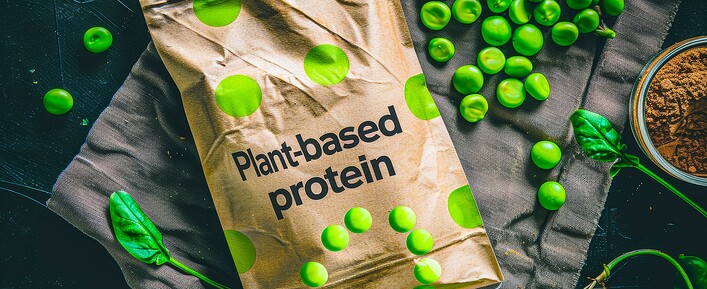Plant-based and organic protein powders are popular, but a new investigation shows just how dirty they can be.
Informed lifters have known for years that plant-based proteins (rice, pea, soy) underperform when it comes to building muscle. After all, muscle protein synthesis is triggered primarily by leucine, and plant proteins are notoriously low in this anabolic amino acid.
Sure, plant proteins can help with your gym goals, but you'd need to consume at least twice as many grams to even get close to the effects of dairy-based proteins like whey and casein. Along with being leucine-poor, plant proteins are less bioavailable due to fiber or antinutrients.
Most plant protein users know this, but they're willing to pay the price because they're vegetarian or vegan. That's fine. However, many non-vegans use plant proteins because they think these proteins are "cleaner" or more natural. But a new report provides evidence to the contrary.
The Investigation
A 2025 investigation by the Clean Label Project tested several protein powders, both plant- and animal-based, for heavy metals and other contaminants. What they found:
- Plant-based protein powders were the most contaminated. They contained five times more cadmium than whey powders.
- 77% of plant-based proteins showed high lead levels.
- 79% of organic protein powders showed high lead levels.
- Organic plant-based powders frequently contained higher levels – on average three times more lead, over four times more cadmium, and 1.5 times more arsenic compared to non‑organic products.
How Are Plant Proteins Contaminated?
Crops used in plant protein powders are very good at absorbing minerals from the soil, including contaminants like arsenic and lead. Rice absorbs arsenic more readily due to its growing conditions, often in flooded fields where arsenic mobilizes from the soil into water. Peas and legumes have deep root systems that can access cadmium and lead from subsoil layers.
Once absorbed, plants can't detoxify or eliminate these metals, so they accumulate in their tissues, which then become concentrated during protein powder production. When these plants are processed to concentrate the proteins, those contaminants also get concentrated.
And while organic farms avoid synthetic pesticides, many don't control for heavy metals already in the soil. Some organic fertilizers (like rock phosphate, manure, or seaweed) can introduce metals like cadmium and mercury.
Dairy-based proteins aren't immune to contamination, but it's less likely. Animals metabolize and excrete many environmental toxins. Dairy protein is derived from milk, of course, which is filtered by the animal's body and is less likely to concentrate metals. And the processing of animal proteins doesn't typically concentrate heavy metals the same way plant extraction does.
The Caveats
This investigation isn't without its critics. For example, the "danger" level of these contaminants was run through the lens of California Proposition 65. Prop 65 requires businesses to warn consumers if products contain chemicals known to the state to cause cancer, birth defects, or reproductive harm.
The problem? The standards are very strict. Prop 65 requires a warning label even if the risk is minimal (like 1 in 100,000 lifetime cancer risk), often far below what the FDA or EPA considers actionable. A trace amount of a naturally occurring chemical can trigger a label – and a predatory, if not extortionate, lawsuit. This makes it hard for consumers to differentiate between minor trace exposure and truly hazardous levels.
Because of that, just about everything in California is getting a warning label, including gym equipment and brass doorknobs. Foods like carrots or spinach contain trace heavy metals or natural toxins, but are still widely considered healthy in normal amounts... but not necessarily under Prop 65.
Some chemicals on the Prop 65 list are controversial or considered outdated and don't reflect scientific consensus on hazard levels. For example, acrylamide, found in toasted bread, coffee, and baked potatoes, is listed as a carcinogen. But research shows dietary acrylamide at typical levels doesn't pose a significant risk to people.
How to Use This Info
Here's what we know:
- Plant-based protein powders are inferior to animal-based protein powders for muscle-building and other athletic benefits. Whey and casein rule the day.
- Plant-based proteins have far more contaminants than animal-based proteins.
- Organic protein powders are some of the worst offenders.
- While these levels are concerning, there's debate about whether these contaminant levels are actually high enough to cause human harm with occasional use.
Unless you're a strict vegan, stick to a clean whey/micellar-casein blend, like Metabolic Drive (Buy at Amazon).
Final Word
Even when fortified with leucine and other EAAs, plant protein powders remain inferior to the MPS horsepower of a whey isolate–micellar casein blend. However — and this is not a paid promotion — if you choose a plant protein, RISE311 is clean and strategically augmented to maximize performance — making it the strongest option the plant world has to offer.



